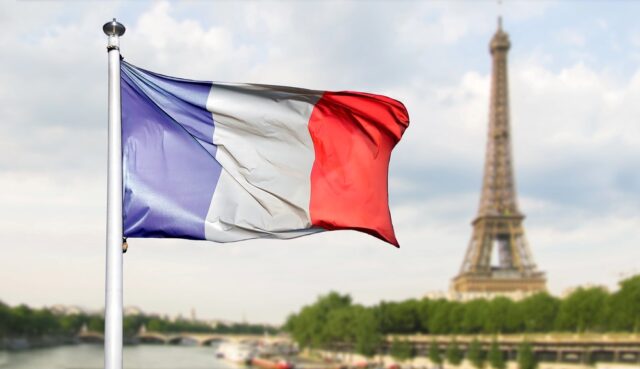France has become the first major EU country to table a law proposing a national Bitcoin reserve, setting a bold precedent. And, a political trap! France’s Bitcoin reserve bill, introduced on October 28 by Éric Ciotti, leader of the Union de la Droite Républicaine (UDR), envisions accumulating about 420 000 BTC, roughly 2% of Bitcoin’s total supply, over the next seven to eight years.
At face value, the proposal looks like a monetary-policy breakthrough. In practice, it’s a stress test for France’s political cohesion, fiscal discipline, and its position inside the euro-zone.
Inside France’s 420 000 BTC Proposal
The proposal lays out a multi-channel strategy for France to acquire 420,000 BTC with limited direct market disruption. Under the national Bitcoin reserve framework, the state would:
- Reinvest seized BTC from criminal proceedings,
- Deploy public mining facilities powered by surplus nuclear and hydroelectric energy,
- Execute gradual purchases on regulated exchanges, and
- Channel part of citizens’ Livret A and LDDS savings flows into BTC-backed funds.
A new public administrative entity (EPA) would safeguard custody, insurance, and reporting, supervised jointly by the Ministry of Economy and the Banque de France.
Stablecoins and Everyday Payments
Beyond the Bitcoin reserve, the draft bill also promotes euro-denominated stablecoins for daily micro-payments and sets a small tax-exempt threshold for digital transactions. Citizens could one day pay certain taxes in BTC or settle small bills via stablecoins pegged to the euro.
Éric Ciotti‘s Bitcoin bill frames these measures as a dual push for financial sovereignty and industrial innovation, positioning France as the first EU state linking a sovereign crypto reserve with a retail payments infrastructure.
Can France’s Bitcoin Reserve Bill Survive Parliament?
Here, the enthusiasm meets reality. UDR holds only a small bloc of seats in the National Assembly. It must attract support from centrists or Republicans to move the bill forward. Finance-committee insiders call the proposal “ideologically bold, fiscally heavy.”
Budget analysts estimate that acquiring 420 000 BTC could cost €15 – 25 billion, depending on market prices. As a result, the plan is bound to ignite debate over priorities amid fiscal-deficit pressures. Even supporters concede that Ciotti’s proposal may evolve into a symbolic declaration rather than executable policy before the 2027 elections.
Still, the conversation it sparks is politically valuable. It reframes digital assets from speculative instruments to strategic reserves, echoing language once used for gold.
EU and Regulatory Constraints
The most formidable barrier isn’t ideological, it’s institutional. Under euro-zone rules, sovereign reserve management rests primarily with the ECB and national central banks. This structure limits unilateral action by member states. That raises a crucial question: can France legally hold Bitcoin reserves under EU rules?
To proceed, Paris would have to classify BTC as a strategic commodity. Alternatively, it could obtain a derogation allowing its inclusion in national assets. By contrast, the bill’s stablecoin and mining sections are less controversial. However, the plan also brushes against EU crypto regulation MiCA, which caps public involvement in token issuance and could restrict state-sponsored stablecoins. Legal experts suggest the mining and custody components might even survive intact. But the fiscal-reserve language would likely trigger immediate EU review.
Energy Policy Meets Mining Ambition
The Bitcoin mining plan is the most technically viable part of the package because France routinely curtails excess nuclear output. Especially overnight or during low-demand months. The bill proposes redirecting this surplus energy into Bitcoin mining to monetize electricity that would otherwise be wasted.
Proponents of the bill estimate that such a setup could generate €100 – 150 million per year. It’s a modest yet symbolically important yield for a public mining pilot. By comparison, critics argue that scaling this to fund the full reserve would require a massive increase in energy allocation, along with grid, environmental, and transparency safeguards.
Market and Global Context
Should it advance, France would become the first developed-economy democracy to establish a national Bitcoin reserve within a fiat-currency bloc. That would contrast sharply with El Salvador’s 2021 experiment and could reposition Europe as an early institutional adopter. For traders, the message matters more than the math. Even partial execution could introduce steady, predictable sovereign demand into BTC markets.
In comparison, El Salvador’s play was symbolic; France’s version would be industrial. Such comparisons to Russia’s reserve exploration and U.S. state-level mining initiatives show how national crypto strategies are becoming mainstream policy topics.
>>> Read more: France Approves LISE, Europe’s First Tokenized Stock Exchange
Feasibility Scenarios
Supporters of France’s Bitcoin reserve bill argue that gradual accumulation could reach critical mass despite volatility. Realistically, France may achieve 0.5 – 1% of the total BTC supply over the initial timeline, significant but below the 2% goal. Outcomes will depend on the bill’s political survival, the rollout of the mining network, and market cycles.
What to Watch Next
Observers will track committee debates scheduled for late November 2025, when the government decides whether to issue a fiscal note. Key questions include:
- Which ministry will fund the initial BTC purchases?
- Will the EU permit a sovereign crypto holding?
- How quickly can surplus-energy mining begin?
If it passes even in amended form, France’s national Bitcoin reserve timeline 2025–2032 could redefine how European states think about strategic assets, digital or otherwise.
Conclusion
Whether France’s Bitcoin reserve bill becomes law or remains a manifesto, it has already shifted the narrative. It challenges the ECB’s monopoly on monetary imagination. It injects digital assets into policy debate, and tests how far a euro-zone member can go in redefining sovereignty through code. France may or may not mine its way to 420 000 BTC. But it sure has mined a new vision of statecraft in the process.











[…] >>> Read more: France Bitcoin Reserve Bill Faces Political Test […]